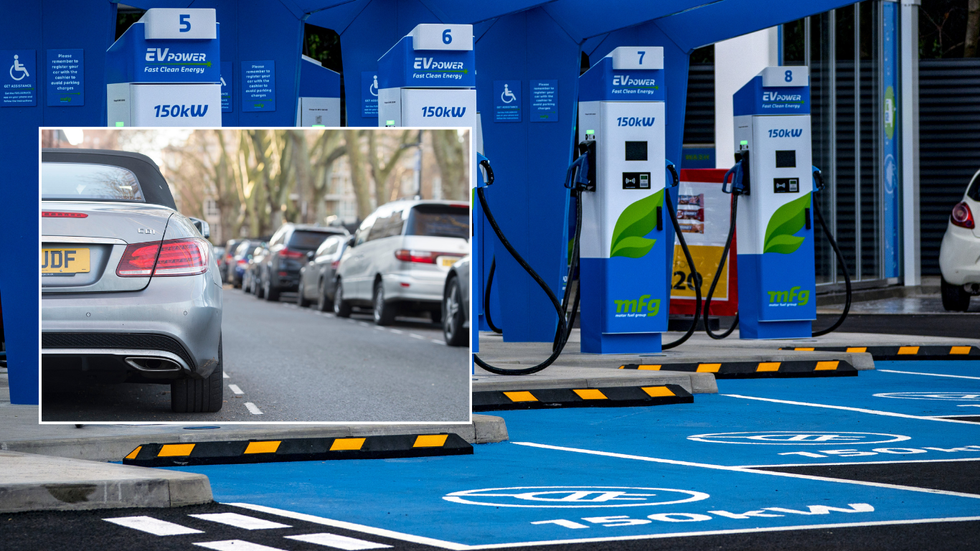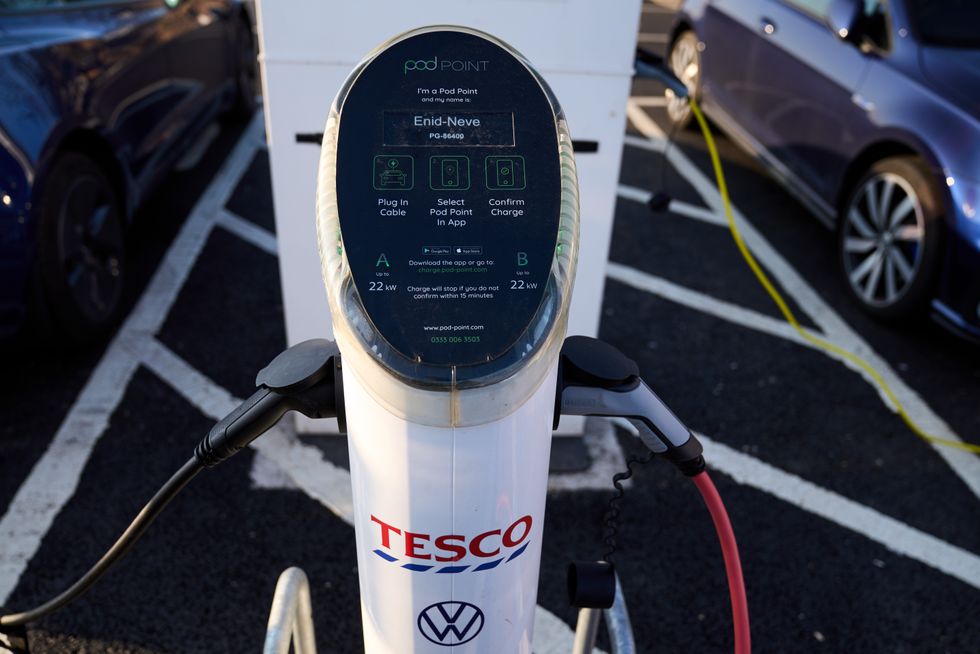The number of public electric vehicle charging points across the UK has surged by more than a third over the past year in a bid to encourage drivers to switch away from petrol and diesel cars
The new figures from the Department for Transport revealed there are 73,334 public charging devices installed nationwide, marking an increase of 19,657 units compared to January 2024.
The significant expansion represents the UK’s continued push towards electric vehicle infrastructure development. Included in the data are 14,448 charging points which are rapid chargers capable of delivering 50kW of power or above.
This growth means there are now 111 standard charging points per 100,000 people across the UK, with an additional 21.7 rapid charging devices per 100,000 people.
Do you have a story you’d like to share? Get in touch by emailing[email protected]

Ultra-fast charging points represent 10 per cent of the total infrastructure across the UK
PA/GETTY
According to the DfT, rapid chargers now make up 20 per cent of all charging infrastructure across the country, offering drivers quick charging capabilities. These high-powered units can take an average electric vehicle from 10 per cent to 80 per cent charge in approximately 30 minutes.
The largest category of chargers remains those rated between 3kW and 8kW, accounting for 57 per cent of all devices with 41,678 units nationwide.
The highest-powered chargers, rated at 150kW and above, represented 10 per cent of the total infrastructure with 7,011 units.
The data also found that nearly half of all charging devices are designated as destination chargers, making up 49 per cent of the network with 35,995 units. On-street charging points have become increasingly prevalent, now representing 36 per cent of all devices with 26,318 units installed across residential streets.
London leads the way in charging infrastructure, with 250 devices per 100,000 people – more than double the national average.The West Midlands follows with 108 devices per 100,000 residents, while the South Eastand South West have 97 and 92 devices respectively.
Northern Ireland showed the lowest level of charging provision, with just 36 devices per 100,000 people. The northwest and Yorkshire and the Humber regions both report 66 devices per 100,000 residents.
Despite London’s high overall numbers, the capital ranked second lowest for rapid charging provision, with only 15.1 devices rated 50kW and above per 100,000 people.
Scotland, however, leads the way in rapid charging infrastructure, with 29 high-powered devices per 100,000 residents – the highest rate in the UK.
Matas Buzelis, car expert at carVertical, praised the growth in the electric vehicle charging infrastructure.
He said: “The increase in the number of publicly available electric vehicle charging points in the UK over the past 12 months is impressive. Putting the infrastructure in place to give drivers confidence that they will never run out of power while on the road is crucial to supporting take-up of EVs.
“The UK is clearly heading in the right direction and if the current rate of investment in EV infrastructure continues, we could see many more drivers choosing to go green.”
Between January 2024 and January 2025, urban areas saw an increase of 14,021 charging devices, representing a 35 per cent growth. Rural areas experienced even stronger growth, with charging device numbers rising by 45 per cent, adding 2,974 new units.
LATEST DEVELOPMENTS:
- Porsche to back petrol cars despite Rachel Reeves threatening £15,000 penalty per vehicle
- Volkswagen set to launch £16,700 electric car as it prepares to ‘attack’ rivals for market dominance
- Drivers urged to act before it’s ‘too late’ or they could risk huge insurance costs and vehicle safety issues

There are now more than 73,000 public chargers around the UK
PA
The Department for Transport data also showed consistent growth in charging infrastructure since 2015, with the latest quarterly period showing increases across all UK regions.